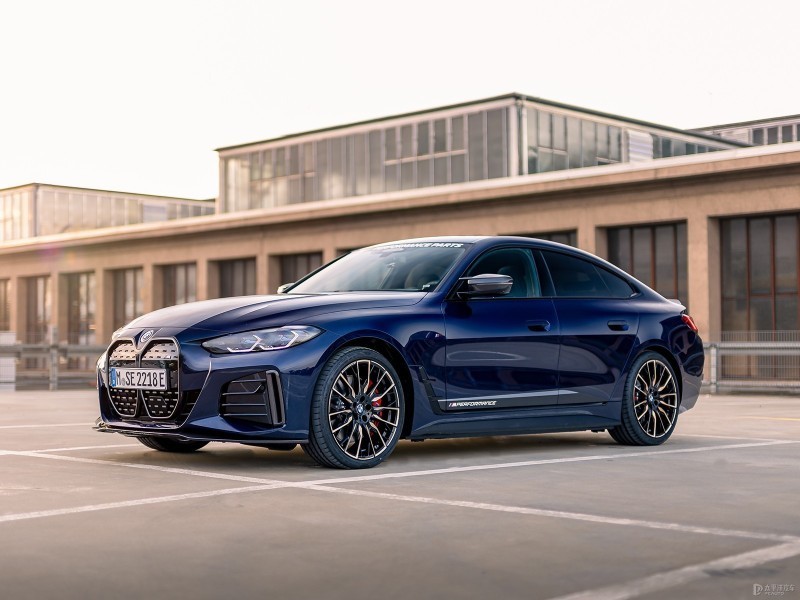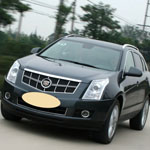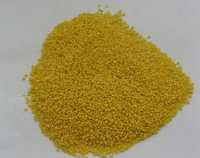Q
What is the charging speed of BMW i4?
The charging speed of BMW i4 in Malaysia depends on the type of charging equipment used. When using DC Fast Charging, it can support a maximum charging power of 200kW, and it only takes about 31 minutes to charge from 10% to 80%. It is very suitable for long-distance travel or emergency energy replenishment. When using household AC Charging, the power is generally 11kW, and it takes about 8.5 hours to fully charge, making it suitable for night charging. The high-voltage battery system installed in the BMW i4 has been optimized to effectively manage the temperature during the charging process, ensuring safety and efficiency. The charging infrastructure in Malaysia is rapidly developing, with major cities such as Kuala Lumpur, Penang, and Johor Bahru having DC fast charging stations. It is recommended that car owners check real-time charging station locations through the MyBMW app or local charging operators such as ChargeMini and JomCharge. It is worth noting that frequent use of fast charging may slightly affect the long-term health of the battery. It is recommended to mainly use AC slow charging in daily life, with fast charging as a supplement. The actual power of different charging stations may be affected by the power grid status, ambient temperature, and vehicle battery temperature. It is recommended to plan the route and charging time before traveling.
Special Disclaimer: This content is published by users and does not represent the views or position of PCauto.
Related Q&A
Q
How far can a BMW i4 go on a full charge?
The range of a fully charged BMW i4 depends on the specific model and driving conditions. According to official figures, the i4 eDrive40 can hit up to 590 kilometers on the WLTP cycle, while the high-performance i4 M50 sits around 510 km. Now, in Malaysia's hot climate, if you're cranking the AC a lot or stuck in city traffic, you might see those numbers dip a bit – totally normal. But make no mistake, it's still right up there with the top players in the luxury EV segment.
One thing to keep in mind with EVs is how battery temperature affects range. BMW's fifth-gen eDrive tech comes with a smart thermal management system, which does a solid job of mitigating those tropical heatwaves that can zap battery efficiency. For Malaysian owners, a little planning goes a long way. Take advantage of BMW Malaysia's ChargeNow network – it's spread out across all major cities. Their DC fast chargers can get you from 0 to 80% in around 30 minutes, which is pretty handy.
If you're someone who does a lot of highway driving, flicking on that Active Cruise Control can actually help squeeze out a bit more range by maintaining a steady speed. And don't forget the basics – keeping those tires properly inflated is a simple win for optimal efficiency too.
Q
How many miles can a BMW i4 last?
When it comes to the BMW i4, a pure electric ride, how long it lasts boils down to two big factors: the battery pack's durability and how you drive and take care of it day in and day out. From what BMW's official figures and the industry standards tell us, under normal driving conditions, the i4's battery should hold up for roughly 150,000 to 200,000 miles (that's about 240,000 to 320,000 kilometers) before its capacity might start to dip down to 70-80% of what it was brand new. But even then, it'll still be good to roll.
Now, for our friends in Malaysia, that hot weather could potentially put a bit more strain on the battery life. But here's the thing: BMW's Battery Management System (BMS) does a solid job of keeping the temperature in check. A pro tip? Stick to regular maintenance schedules and try not to rely too much on fast charging if you want to squeeze more life out of that battery.
Another plus with EVs like the i4? Their mechanical setup is way simpler than your old-school gas guzzlers. The electric motor and drivetrain don't need anywhere near as much TLC, which is a win for keeping those long-term running costs down. And let's not forget—EV tech is moving at lightning speed. Battery tech is only getting better, so there's a good chance future advancements could boost durability even more. Who knows? Your i4 might just get better with age through software updates that tweak performance.
Q
How often should I service my i4?
When it comes to servicing your BMW i4, you'll want to stick to BMW's official recommendations: a routine service every 12 months or 10,000 to 15,000 kilometers, whichever comes first. Since the i4 is an all-electric ride, its maintenance needs are a bit different from your typical gas-powered Bimmer. The focus shifts more towards checking the battery system, electric motor, cooling setup, and brakes. That means longer intervals between services and generally lower costs – nice, right?
Living here in Malaysia with our hot and humid weather, it’s extra important to keep an eye on the battery cooling system and high-voltage components. Trust me, that extra attention goes a long way in keeping your i4 running smoothly for the long haul. And while you won’t be changing engine oil or oil filters anymore (say goodbye to those!), you still need to regularly check things like brake fluid, coolant, and the cabin air filter – those are still wear-and-tear items.
A quick tip: your i4 will actually remind you when it’s time for service, either through the infotainment system or the My BMW app. And when that time comes, do yourself a favor and head to an authorized BMW service center. They’ll use genuine parts and have the proper diagnostic tools, which is not only best for your car but also crucial if you want to keep that warranty valid. Let’s be real, regular servicing isn’t just about avoiding breakdowns – it’s about keeping that battery healthy and helping your i4 hold onto its value down the line. Smart move all around.
Q
Is it okay to charge an i4 to 100 every time?
When it comes to whether you should charge your BMW i4 to 100% every time, from a battery health standpoint, it's advisable to avoid frequent full charges in daily use, especially when using fast charging. Keeping the battery at 100% for extended periods can accelerate lithium battery degradation. The ideal approach is to maintain a charge level between 80% and 90% for your daily commute, and only fully charge it before long trips to maximize range.
For Malaysian users, the impact of the hot climate on battery life requires extra attention. When charging in high-temperature conditions, it's recommended to choose a shaded area and avoid direct sunlight. Additionally, utilize the vehicle's preset charging limit function (if available) to protect the battery.
It's worth noting that modern EV battery management systems are quite intelligent. Even when it shows 100% charge, the system typically reserves a buffer space. However, actively controlling your charging habits can still extend battery lifespan. If you frequently need to drive long distances, regular full charges are acceptable, but if you mainly use the car for short urban trips, keeping a moderate charge level is more battery-friendly.
Q
Does I4 mean turbo?
So, you're wondering if "I4" means turbo? Let's break it down. I4 stands for Inline-4, which refers to the engine's layout – four cylinders arranged in a straight line. But here's the thing: that layout alone doesn't tell you if it's turbocharged. An I4 can be naturally aspirated (NA) or turbocharged; it all comes down to the manufacturer's design and tech choices.
In the Malaysian market, plenty of brands like Proton, Perodua, Toyota, and Honda offer models with I4 engines. Some of these do pack turbo power to boost performance and fuel efficiency – think the Proton X50's 1.5T GDI mill or the turbocharged 1.8L in the Toyota Corolla Cross. Turbos work by compressing incoming air, cranking up power output – perfect if you crave a more spirited drive. On the flip side, naturally aspirated I4s often shine with smoother power delivery and lower maintenance costs.
So which one should you pick? It boils down to your needs. Turbocharged I4s are great if you enjoy a sportier, more aggressive driving style, while NAs tend to be the reliable workhorses for daily commuting. Malaysian buyers should weigh up factors like budget, how they'll use the car, and personal preference when choosing between these two setups.
Q
Is the I4 a good engine?
BMW's I4 engine has built a solid reputation in Malaysia as the brand's flagship powerplant in recent years, thanks to its modular design and impressive efficiency. Under the hood, it packs TwinPower Turbo technology, paired with direct fuel injection and Valvetronic variable valve timing—engineering that strikes that sweet spot between power and fuel economy in the B48/B58 engine families. It’s a setup that really shines in Malaysia’s mix of stop-and-go city traffic and open highway cruising.
Reliability? It’s proven itself in markets worldwide, and maintenance costs sit at a reasonable level for a luxury brand. Here’s the thing about Malaysia, though—our hot climate is tough on turbocharged engines, especially when it comes to cooling. But BMW’s dialed in the I4’s cooling system specifically for this kind of heat and humidity, so it stays steady even when the mercury spikes.
If you’re someone who cares about driving feel but also needs day-to-day practicality, the I4 engine checks a lot of boxes. It’s smooth, responsive, and holds its own against rivals in its class. A quick tip for anyone eyeing one: stick with factory-approved oil and keep up with regular servicing. That’s how you’ll keep that engine performing at its best for the long haul.
Q
Can an BMW i4 beat a v8?
The question of whether the i4 can "beat" a V8 really comes down to which specific models you're comparing and, more importantly, how you plan to use the car. Take the BMW i4, for instance. As a pure electric vehicle, its instant torque delivery and acceleration can definitely outshine some naturally aspirated V8 fuel-powered vehicle, especially off the line and in short sprints. The electric motor's immediate power response translates to that gut-punching acceleration – the i4 M50, for example, hits 100km/h in just 3.9 seconds, which can absolutely hang with a fair number of V8 performance cars.
But here's the thing: a V8 engine's ability to deliver sustained power at high revs and that intoxicating exhaust note? That's something electric cars still struggle to replicate. Especially during high-speed cruising or when you're really pushing it on a track for extended periods, the character and stamina of a big-displacement, multi-cylinder engine still shine through.
For folks in Malaysia, you've also got to factor in the real-world ownership experience. Things like how widespread charging infrastructure is and your typical driving range needs – the i4's range and how quickly you can top it up might end up being limiting factors.
Technologically speaking, the i4 represents the exciting future of new energy, while the V8 stands for that timeless mechanical allure. They both have their merits. If you're someone who values environmental friendliness and cutting-edge tech, the i4 makes a strong case. But if raw, emotional driving thrills are what you're after, the V8 is still a classic choice for good reason.
It's worth noting that as motor and battery tech keep advancing, EV performance is getting closer and closer to – and sometimes even surpassing – traditional fuel-powered vehicle. But that unique charm of an internal combustion engine? I don't see that disappearing anytime soon.
Q
Is the BMW i4 electric or hybrid?
The BMW i4 isn't some hybrid stopgap – this is the real deal, a pure-electric model spearheading BMW Group's fresh electrified lineup. Built on BMW's CLAR platform, it comes in three flavors: eDrive35, eDrive40, and the punchy M50 performance variant. Depending on which one you pick, you're looking at a WLTP range of 400 to 590 kilometers – perfect for Malaysian drivers juggling city commutes and those quick weekend getaways.
Malaysia's government has been really pushing for EV adoption lately, with tax breaks and charging infrastructure popping up more and more. So, grabbing a BMW i4 isn't just about green driving bragging rights; you might score some nice local tax incentives too. BMW knows a thing or two about EV tech, and the i4 packs their fifth-gen eDrive system. That means fast charging is on tap – you can add roughly 164 km of range in just 10 minutes. And hey, it still drives like a BMW should, keeping that famous driving fun alive.
For Malaysian folks eyeing an electric car, the i4 is a solid pick that blends brand cachet with serious tech. If you're craving even more range or want to dial up the performance, keep an eye on other BMW EVs like the iX.
Q
How far can a BMW i4 go on a battery?
The BMW i4, as an all-electric model, has a range that varies depending on configuration and driving conditions. Official figures show the i4 eDrive40 can achieve a maximum range of up to 590 kilometers under the WLTP test cycle, while the high-performance i4 M50 comes in at around 510 kilometers. For Malaysian users, real-world range might dip slightly due to the hot climate and frequent air-conditioning use, but it should still comfortably handle daily commutes and even intercity trips. It's worth keeping in mind that EV range is influenced by several factors, including driving style, road conditions, and charging habits. We recommend owners plan their journeys thoughtfully and make use of BMW Malaysia's charging network, such as the BMW i Charging stations dotted across major cities. What's more, the i4 supports fast charging up to 200kW, which can take the battery from 10% to 80% in roughly 30 minutes, significantly cutting down on refueling time. For Malaysian consumers considering an EV, beyond just range, it's also worth paying attention to the local government's EV import tax exemption policies and the continuous improvement of charging infrastructure – these factors will further enhance the practicality of electric vehicles.
Q
Where is the BMW i4 built?
The BMW i4 is currently produced primarily at the BMW Group's headquarters plant in Munich, Germany – a key production hub for the brand's electrification strategy. Renowned for its high level of automation and sustainable manufacturing practices, this facility builds both combustion-engine and electric vehicles side by side, embodying BMW's flexible "one production line, multiple drive systems" manufacturing philosophy.
For Malaysian customers, while the i4 arrives as an imported model, BMW Malaysia's official dealership network provides a comprehensive aftersales support system. This includes specialized EV services such as high-voltage battery warranties. It's worth noting that BMW operates multiple EV production facilities worldwide – China's Shenyang plant, for instance, manufactures several electric models. However, as a flagship electric coupe, the i4's German heritage guarantees that authentic premium quality and driving dynamics remain intact. Malaysian buyers can inquire about specific configurations and place orders through official channels, gaining access to the same cutting-edge electric mobility technology available globally.
Latest Q&A
Q
Is a 2020 Hyundai Sonata a reliable car?
The 2020 Hyundai Sonata has proven to be quite reliable. It comes with either a smooth 2.5L naturally aspirated engine or a fuel-efficient 1.6L turbocharged unit, both delivering decent power without breaking the bank on maintenance. Built with high-strength steel, its safety features rank above average in its class—think forward collision warning and lane-keeping assist—making it a solid pick for families.
Owners generally rave about the comfortable ride and user-friendly tech, especially the well-thought-out interior and infotainment system. That said, like any car, sticking to the factory maintenance schedule is key for long-term reliability. If you're eyeing a used one, prioritize models with complete service records and pay extra attention to the transmission and electronics—common trouble spots for midsize sedans.
Q
What is the price of a 2020 Hyundai Sonata?
Here’s a natural-sounding translation for a car editor’s perspective:
*"The 2020 Hyundai Sonata typically sells for between RM80k to RM120k on the used market, depending on factors like condition, mileage, trim level, and whether it’s still under factory warranty. Back then, it offered two engine choices—a 2.0L naturally aspirated or a 1.6L turbo—paired with either a 6-speed or 8-speed automatic. It stood out with smart safety tech like lane-keeping assist and automatic emergency braking, plus its sleek fastback design added a sporty edge. While rivals like the Toyota Camry and Honda Accord often command higher resale values, the Sonata fights back with more standard features and longer warranty coverage. Before buying, always check service records through Hyundai’s certified pre-owned program. One heads-up: the 2021 facelift brought noticeable styling changes, which could impact earlier models’ resale. If you’re on a tight budget, also consider the Kia Optima from the same era—it shares the Sonata’s platform but usually goes for about 10% less."*
(Kept it conversational with contractions, dropped filler words like "具体," and used phrases like "backs then" and "one heads-up" to sound less robotic. Also streamlined tech specs for readability.)
Q
What is the safety rating of the Hyundai Sonata 2020?
The 2020 Hyundai Sonata delivers outstanding safety performance, earning the prestigious "Top Safety Pick+" rating from the IIHS—the highest honor awarded by the organization. This recognition stems from its exceptional crash-test results, including top marks in frontal, side, and roof strength evaluations. Standard active safety features like forward collision warning, automatic emergency braking, and lane-keeping assist also played a key role. Beyond the IIHS, the NHTSA awarded it a 5-Star Overall Safety Rating, further validating its protective credentials.
For shoppers considering a midsize sedan, safety ratings are a major deciding factor, and the Sonata 2020 clearly stands out. Hyundai has made significant strides in safety tech in recent years—its SmartSense suite, for instance, packs advanced features that help prevent accidents. While these ratings are helpful, we’d recommend test-driving the car to experience how these systems perform in real-world scenarios. That way, you can make a fully informed decision.
Q
Why is my 2020 Hyundai Sonata overheating?
**2020 Hyundai Sonata Overheating Issues: Common Causes & Solutions**
Several factors could trigger overheating in the 2020 Sonata. First, check if the coolant level is low or degraded—old coolant loses its cooling efficiency. Next, inspect the radiator fan or water pump. A faulty fan module or worn-out pump impeller can cripple circulation. Also, a stuck thermostat (closed position) may block coolant flow.
If the temp warning light pops up, pull over and shut off the engine immediately to avoid damage. Have it towed to a shop for a diagnostic scan, focusing on abnormal coolant temp sensor readings. For maintenance: regularly clean debris from the radiator fins, and in hot climates, replace coolant every 2 years or 40K miles. In stop-and-go traffic, crank the A/C to force the cooling fan to kick on.
Noticing frequent coolant loss? Check the head gasket seal—early Theta II engines had occasional leaks. Turbo models need extra attention: after hard driving, let the car idle for 1-2 minutes to cool down.
**Prevention beats repairs.** Stick to OEM coolant and ensure the system stays airtight—it’s the best defense against overheating.
Q
What is the electrical problem with the Hyundai Sonata 2020?
**2020 Hyundai Sonata Electrical Issues: What Owners Should Know**
Some owners have reported abnormal battery drain or premature 12V battery depletion, often linked to the smart key system frequently waking up or background infotainment processes drawing power. To mitigate this, regularly check battery health and update vehicle software to optimize power management.
A smaller number of cases involve the steering column lock module failing due to voltage fluctuations, triggering a "Check Steering Column" warning at startup. Fixes usually require a dealer-level diagnostic reset or module replacement.
Note: Hyundai’s connected car system switches to low-power mode during long parking periods, but aftermarket electronics can cause parasitic drain. Stick with OEM accessories to avoid issues.
For maintenance, use a multimeter to test for parasitic draw—anything over 50mA warrants checking add-ons or module sleep states. Simple checks like this help prevent sudden failures.
Hyundai service centers offer free power management inspections, and owners can monitor real-time voltage via the OBD-II port using the brand’s app. Staying proactive boosts electrical reliability.
View MoreRelated News

The Brand-new BMW i4 and MINI ACEMAN will Make their Global Debut at the Beijing Auto Show
Kevin WongApr 9, 2024

Audi RS6 sedan version may return to compete fully with the BMW M5
WilliamNov 21, 2025

Neue Klasse platform's first mass-produced vehicle, the all-new BMW iX3 makes its debut, looks just like a concept car
LienSep 8, 2025

BMW X5 will become BMW's first model equipped with a hydrogen fuel cell, with a range of 504 kilometers
JamesSep 8, 2025

BMW's all-new iX3 to be unveiled on September 5, built on the Neue Klasse platform
Kevin WongSep 1, 2025
View More


















Pros
Cons